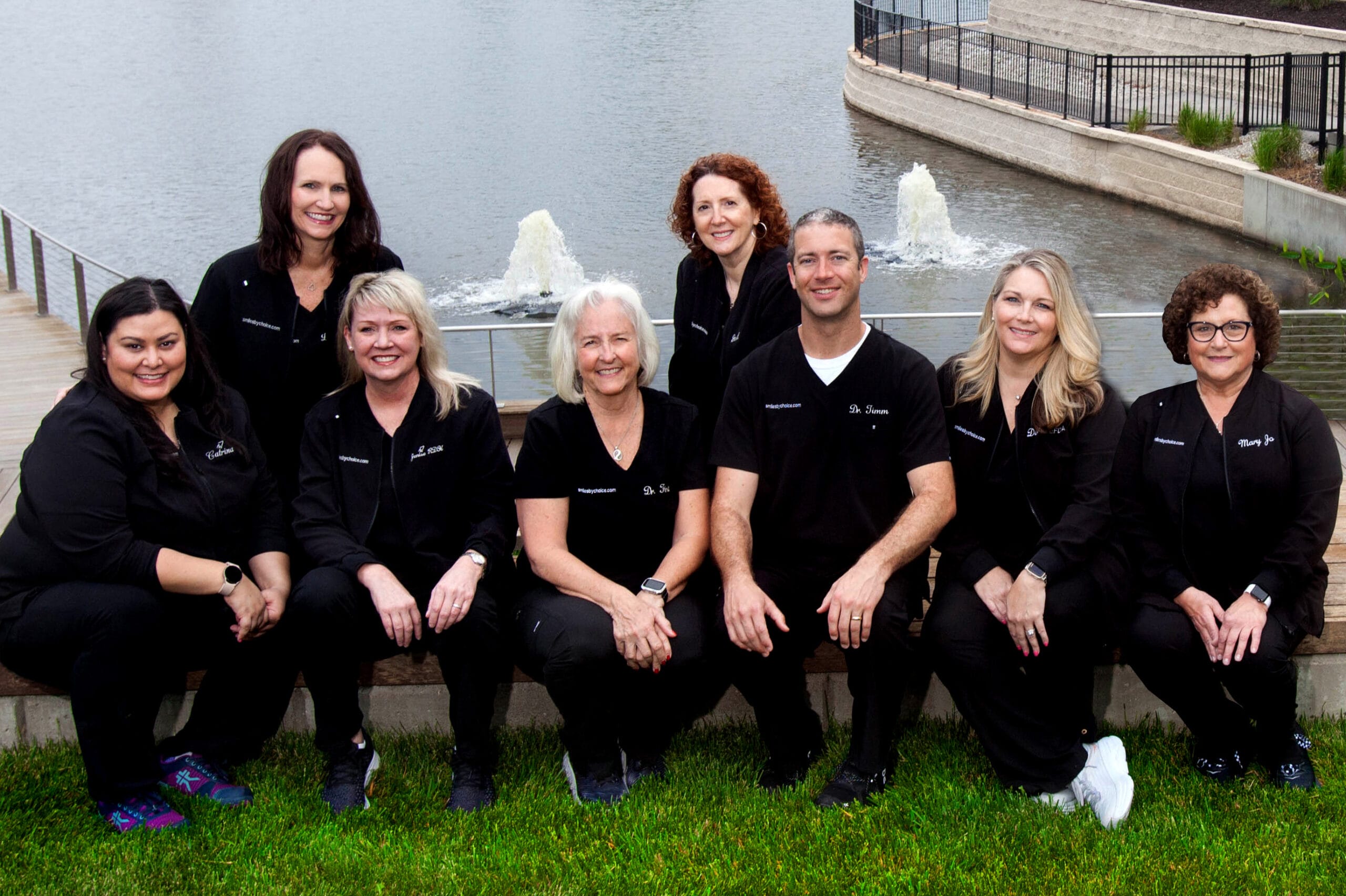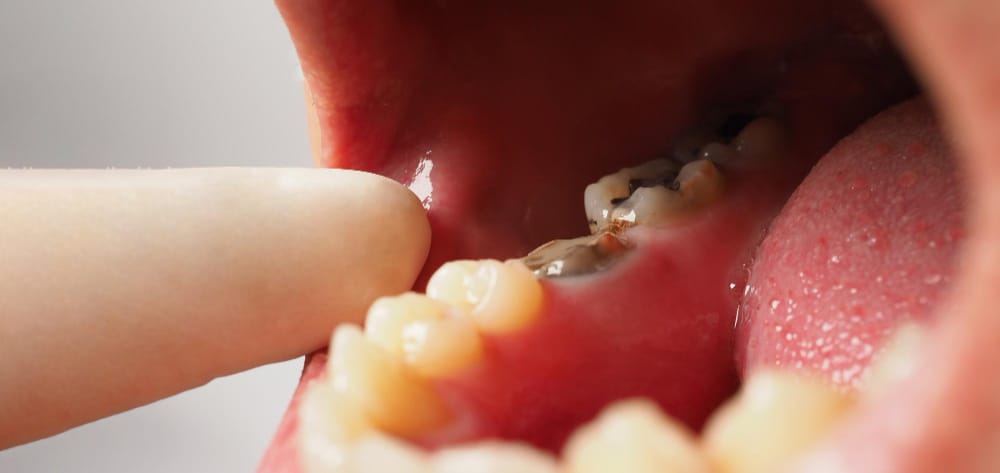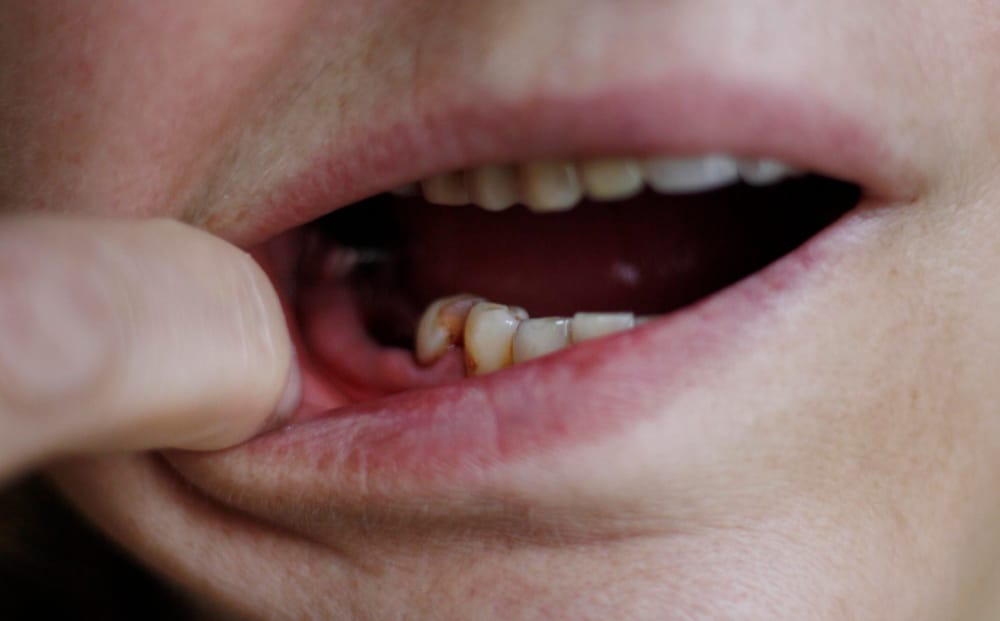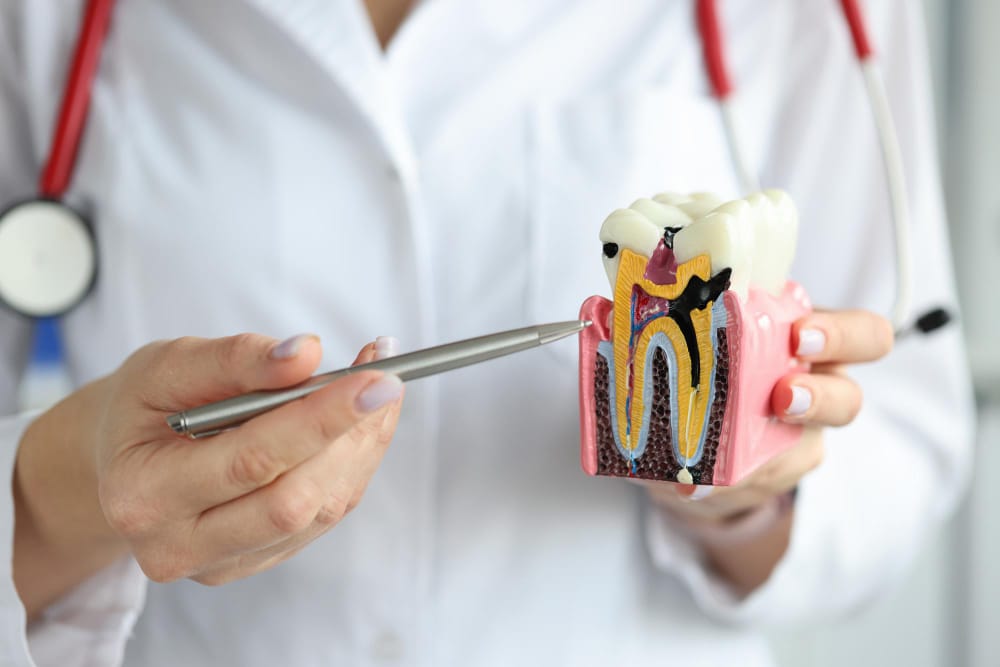77 Westport Plaza Dr.
Suite 205, St. Louis, MO 63146
Suite 205, St. Louis, MO 63146
Dental crowns are the true “crown” of both cosmetic dentistry and restorative dentistry; they offer effective solutions for a wide range of dental issues, from restoring damaged teeth to enhancing the beauty of your smile. At Smiles by Choice, Dr. Adam Timm and Dr. Louise First –– two of the best cosmetic dentists in Maryland Heights –– leverage advanced technology and their years of experience to ensure that every patient gets top-tier dental care. Here, we’ll look at the reasons to get dental crowns, the process, and some common questions you may have.

Deciding whether dental crowns are right for you doesn’t have to be a difficult process. Simply ask yourself these questions:
If you answered “yes” to any of these questions, that’s your sign to schedule a consultation with two of the best dentists in Maryland Heights, MO –– Dr. Timm and Dr. First!

Dental crowns help combat the effects of tooth decay, where enamel and dentin are destroyed due to acid production from bacterial metabolism of sugar in the mouth. If a tooth undergoes significant decay, its structural integrity becomes compromised. With a dental crown, the tooth is encased completely. A robust barrier protects against further decay while restoring the original form and function of the tooth. Plus, it prevents bacteria from getting into the tooth, which safeguards the tooth from additional harm.

Teeth may break or wear down for several reasons, including bruxism (teeth grinding), trauma to the mouth and/or jaw, or the natural aging process. Crowns restore these teeth by reinstating their original shape, size, and strength. The materials used for crowns, such as porcelain or ceramic, are designed to mimic the hardness and durability of natural tooth enamel. This allows the restored tooth to withstand the forces of biting and chewing just as well as — if not better than — before the damage occurred.

After a root canal (a procedure to remove infected or inflamed pulp from within a tooth), the remaining tooth structure can become fragile and prone to fracture. A dental crown provides a necessary reinforcement, effectively redistributing the forces exerted during chewing to prevent breakage. Essentially, the entire visible portion of the tooth above the gum line is encased by the dental crown to restore structural integrity and shield the tooth from future infections.

If you have misshapen or discolored teeth, crowns act as a dental camouflage. The crown envelops the natural tooth in a layer of material that is shaped and colored to blend seamlessly with adjacent teeth. This brings a harmonious balance in terms of color, shape, and alignment throughout your smile.

While dental crowns are a versatile and effective solution for many dental issues, you should consider all available treatment options, with help from your dentist. You may find that a different dental treatment is better suited to your needs. Our team can guide you through other treatment options, such as:
Dental Implants
Dental Implants: Implants provide a durable and natural-looking solution, restoring both the root and crown of a tooth; they’re mostly used to replace missing teeth.
Dental Bridges
Bridges are anchored to adjacent teeth or implants for support in order to fill the gap created by one or more missing teeth.
Porcelain Veneers
Veneers address cosmetic issues, such as chips, gaps, or severe discoloration, and offer a less invasive way to beautify your smile.
Inlays and Onlays
These offer a conservative restoration method, preserving as much of the natural tooth as possible, especially where the tooth structure is too damaged for a filling but not damaged enough for a crown.
Composite Bonding
Bonding uses a tooth-colored resin that is shaped and polished to match your surrounding teeth for a quick and effective way to repair minor chips, cracks, or gaps.
You don’t want any surprises when it’s time to get your dental crowns done. Here’s what you can expect from our patient-centered, expertise-driven process.
The first visit includes a detailed examination of your teeth, gums, and jaw to give our team a clear view of your dental structure. We consider factors such as the alignment of your teeth, any signs of decay or damage, and the health of your gums.
And your voice matters! We believe in a collaborative approach to dental care, where your input plus our expertise creates a treatment plan that addresses your immediate dental issues and aligns with your long-term health and aesthetic goals.
This step involves reshaping the tooth and removing any decay to ensure a proper fit for the crown. This is usually completed in one session. At the end of the session, an impression of your tooth will be taken to craft your custom crown. You’ll wait a few days to receive the custom crown, and in the meantime, we’ll place a temporary crown to protect the treatment site while you wait.
Using the impressions, your custom crown will be designed to match the color, shape, and size of your surrounding teeth for a natural look and feel.
Once your crown is ready, you’ll come back for the final fitting, where any necessary adjustments will be made. Then, the crown is cemented in place. You will likely receive local anesthetic for this final step. Once the crown is fitted and set, your new smile is ready!
Choosing Smiles by Choice for your dental crowns in Maryland Heights, MO, means going with a team that values precision, aesthetics, and your overall dental health. Contact us and experience the peace of picking a team that puts your satisfaction and dental health at the forefront of everything we do.
With proper care, dental crowns can last anywhere from 5 to 15 years, or even longer. Factors like the material of the crown, its location in your mouth, and your oral hygiene habits all play a role in longevity. Regular check-ups and good oral hygiene are essential to extend their lifespan.
Yes, crowns protect and strengthen damaged teeth, improving your overall oral health. However, it’s still important to maintain good oral hygiene to prevent decay under or around the crown.
Not always. Dental crowns are a flexible treatment option that only sometimes require a root canal. Your dentist will advise if a root canal is necessary before getting a crown.
You can eat (or drink) soft foods about an hour after the procedure, or as soon as the anesthetic wears off. However, you should wait for the cement of the crown to cure completely before you eat hard foods; this usually takes around 24 hours. With temporary crowns, it’s best to avoid chewing on that side of your mouth.